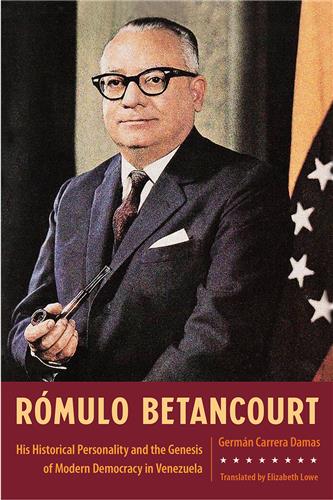The Invention of the Beautiful Game
Football and the Making of Modern Brazil
Gregg Bocketti
Paper: $26.95
“Advances the compelling notion that a close look at the history of Brazil’s most celebrated, popular, and influential sport can teach us much about the country’s complicated history.”—The Americas
“A nuanced and insightful analysis of the contending narratives about the emergence and expansion of football in Brazil, and of how they have produced the powerful nationalist narrative of the futebol nation.”—H-Net Reviews
“Bocketti proposes that nationalist soccer history, emphasizing democratization and ‘Brazilianization’ of the game, ignores early participation of women, continuing dominance of middle-class and wealthy club directors and the effects of exporting players to European teams. . . . Highly recommended.”—Choice
“Innovative for soccer history because of its detailed reconstruction of the sport’s formation in Brazil. The study is immersed in social facts, mediated by practices, institutions, entities, beliefs, and routines, among other corporate dimensions, that contribute to uncovering reality and deconstructing the myth that soccer is authentically interclass and multiracial.”—Hispanic American Historical Review
“A major contribution to the scholarship on football (soccer) and its centrality in Latin American society and culture. . . . Provides a fascinating and controversial look into how ‘the beautiful game’ of football became an integral part of Brazilian national identity.”—Journal of Sport History
“A richly told story of football’s formative decades in Brazil’s largest cities.”—Luso-Brazilian Review
"Beautifully researched and engagingly told, this book captures the bitter conflicts and surprising continuities that marked the emergence of a national style in Brazil as it tells the story of the men and women who, despite their many differences, together created 'the beautiful game. '"—Roger Kittleson, author of The Country of Football: Soccer and the Making of Modern Brazil
"Compellingly shows how each segment of Brazilian society--players, club owners, and spectators, especially the usually neglected female fans--was touched by the sport that it eventually came to proudly embrace as its own."—Amy Chazkel, coeditor of The Rio de Janeiro Reader: History, Culture, Politics
"Highlights the narrative power of soccer, showing how Brazilians—from elite sportsmen and nationalist intellectuals to common men and women—infused the sport with both personal and national importance."—Joshua Nadel, author of Fútbol!: Why Soccer Matters in Latin America
Although the popular history of Brazilian football narrates a story of progress toward democracy and inclusion, it does not match the actual historical record. Instead, football can be understood as an invention of early twentieth century middle-class and wealthy Brazilians who called themselves "sportsmen" and nationalists, and used the sport as part of their larger campaigns to shape and reshape the nation.
In this cross-cutting cultural history, Gregg Bocketti traces the origins of football in Brazil from its elitist, Eurocentric identity as "foot-ball" at the end of the nineteenth century to its subsequent mythologization as the specifically Brazilian "futebol, " o jogo bonito (the beautiful game). Bocketti examines the popular depictions of the sport as having evolved from a white elite pastime to an integral part of Brazil’s national identity known for its passion and creativity, and concludes that these mythologized narratives have obscured many of the complexities and the continuities of the history of football and of Brazil.
Mining a rich trove of sources, including contemporary sports journalism, archives of Brazilian soccer clubs, and British ministry records, and looking in detail at soccer's effect on all parts of Brazilian society, Bocketti shows how important the sport is to an understanding of Brazilian nationalism and nation building in the late nineteenth and early twentieth centuries.
Gregg Bocketti is associate professor of history at Transylvania University.
- Sample Chapter(s):
- Table of Contents
- Excerpt
Bocketti proposes that nationalist soccer history, emphasizing democratization and "Brazilianization" of the game, ignores early participation of women, continuing dominance of middle-class and wealthy club directors and the effects of exporting players to European teams.
--Choice
Innovative for soccer history because of its detailed reconstruction of the sport’s formation in Brazil. The study is immersed in social facts, mediated by practices, institutions, entities, beliefs, and routines, among other corporate dimensions, that contribute to uncovering reality and deconstructing the myth that soccer is authentically interclass and multiracial.
--Hispanic American Historical Review
A nuanced and insightful analysis of the contending narratives about the emergence and expansion of football in Brazil, and of how they have produced the powerful nationalist narrative of the futebol nation.
--H-Net Reviews
A major contribution to the scholarship on football (soccer) and its centrality in Latin American society and culture. . . . Provides a fascinating and controversial look into how “the beautiful game” of football became an integral part of Brazilian national identity.
--Journal of Sport History












